When you come to Japan, visiting a karaoke box is an absolute must. After all, the word karaoke (カラオケ) originated in Japan. As opposed to the type of karaoke where you perform in front of lots of strangers, in Japan, you can rent a private room for your party or entirely for yourself. In this guide we give a comprehensive overview on how to optimize your Japanese karaoke experience, including how to book a room, the names of big karaoke chains and what makes them unique, karaoke etiquette and the cost of karaoke. So, whether it’s your first time going to a karaoke box or your umpteenth, we hope you’ll find something you didn’t know before.
Jump to:
What you need to know before you go
Making a reservation in advance
Membership and purchasing your own microphone
What are karaoke boxes?

Karaoke boxes might be a confusing term to those that are used to karaoke being performed in bars and on stages in front of lots of people. In Japan, however, karaoke boxes are run by karaoke chains. In each branch you’ll find dozens of private rooms across multiple floors all kitted out with microphones, speakers, glamorous party lights and plush seating. All of these rooms can be rented for karaoke and are soundproof. Having your own private room takes away most of the stage-fright that many experience with karaoke and makes for a much more relaxed and comfortable setting. Furthermore, most karaoke chains are child friendly, turning karaoke into a fun family outing.
Who goes to karaoke in Japan?
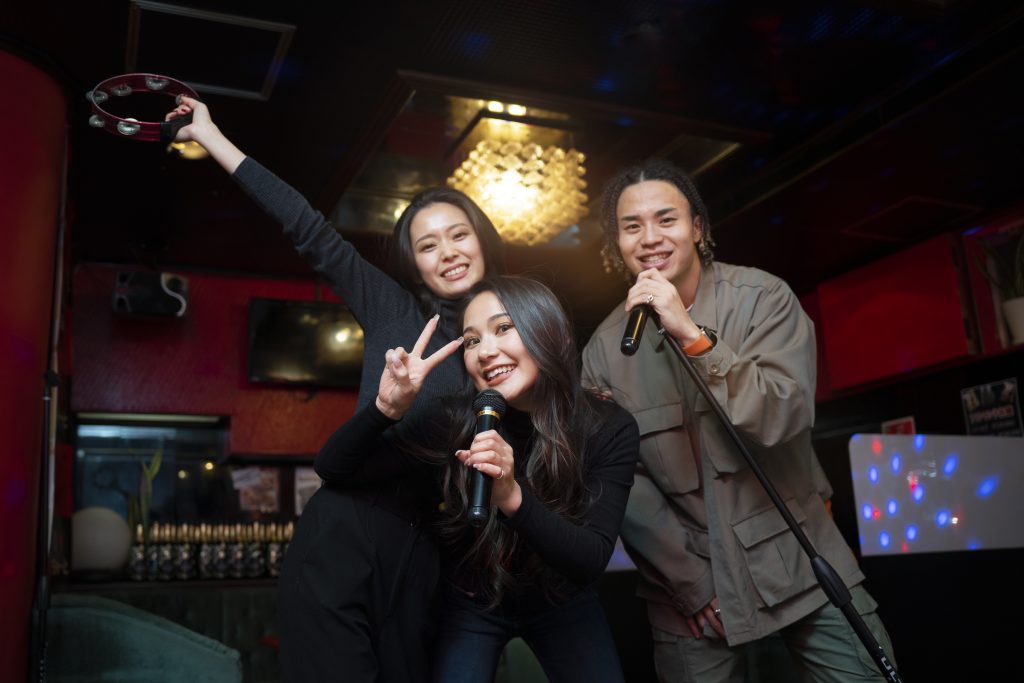
Everyone. One of the special things about karaoke in Japan is that it really is for everyone and you don’t need a special reason to go. In fact, for some people, karaoke is their hobby and they regularly sing in karaoke boxes. One of the many things that makes Japanese karaoke so special and unique is that it is perfectly normal to go by yourself. Of course, there’s also the option to go in a group. It is fairly common to party at karaoke after drinking at an izakaya or nomikai (飲み会/のみかい), which is essentially a drinking party. But karaoke does not have to be followed after drinking, it can be a fun activity to sing your heart out with friends or even a date idea.
TIP: As karaoke boxes are usually open until the early hours of the morning, if you stay out too late and miss the last train, you might be able to pass time in a karaoke box until the first train.
What you need to know before you go

Before you go to karaoke, it is a good idea to familiarize yourself with some of the songs you would like to sing as well as the four Japanese karaoke etiquette rules we have listed below.
- Don’t request the same song after someone has just sung it.
Not only does this become repetitive for the group but people will subconsciously compare both versions so, it’s best to choose a new song. You can always save that song for next time.
- Don’t steal other people’s songs.
Some songs are great sung together whereas others are best sung solo. Try not to sing over whoever’s turn it is, instead, hum and drum along to show your support.
- Don’t hog the mic.
Unless of course you are the only one, make sure you switch it up and take turns.
- Encourage and cheer for the person singing.
Nothing puts a singer off more than a bad audience. Cheer for the person singing by humming or shaking borrowed maracas or a tangerine.
Popular karaoke chains
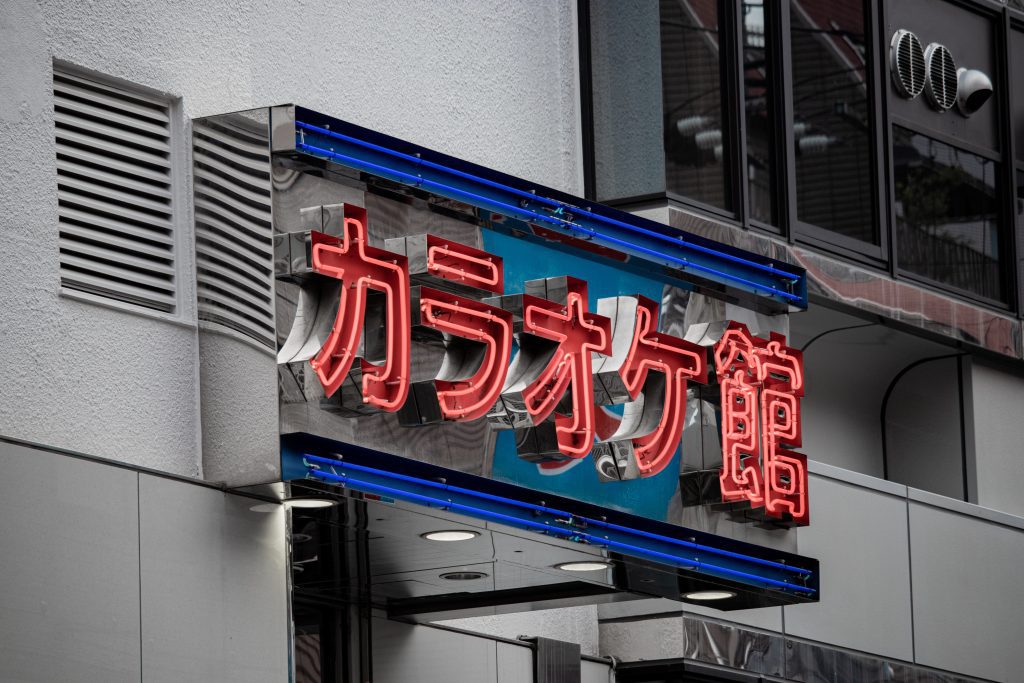
Most major karaoke chains are open from 11am until the early hours of the morning such as 3am. Some places in particularly busy areas such as around Shibuya and Shinjuku are open all day. Although karaoke can be a great way to practice your Japanese, both for pronunciation and kanji reading, you’ll also find many chains offering songs in English, Chinese and Korean. Below we’ve listed some of the most popular chains in Tokyo.
- Manekineko. With over 500 stores, this is Japan’s second largest karaoke chain. What sets Manekineko apart from other chains is that they allow you to bring in your own food and drink, plus many of their stores open 24 hours a day. Some of the newer branches even have their own recording room where you can record your own songs.
- Karaoke kan. This chain is particularly good for large groups with special party and VIP rooms. They also have darts and cosplay costumes! You can further purchase one of their signature golden microphones on site.
- Big Echo. This chain is one of the most popular in Japan and is run by the company DAM (Daiichikosho). If you prefer DAM’s model, you will most certainly enjoy this chain (see “how to use a karaoke box” for more on models). Furthermore, they have a LIVE DAM AI function which uses artificial intelligence for precise scoring.
- Côte d’Azur. With themed rooms such as a stage and an extensive food menu, including a kids menu, Côte d’Azur is a popular choice for families looking to enjoy karaoke together or for foodies looking for a good bite in-between singing.
- JOYSOUND. If you like the JOYSOUND model then this chain is for you. JOYSOUND further has interactive games you can play on a big screen and occasionally have collaborative projects with anime and idols.
- 1 Kara. Ideal for those that want to try solo karaoke. At 1 Kara you can rent a small soundproof booth for just one person and you’ll also receive headphones.
How to use a karaoke box
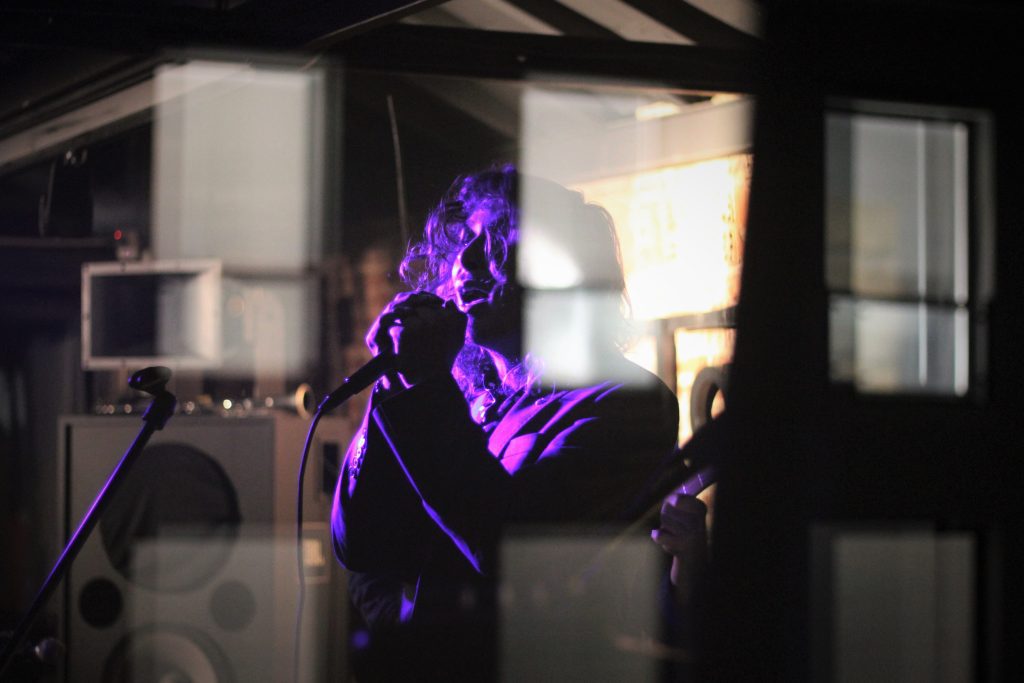
1.Visit reception. You can walk straight into karaoke usually without a reservation, however, if it is busy you may need to wait until a room becomes available.
2.Register. If it is your first time, one member in your group may be required to register and so you will need some form of ID such as a passport or residence card.
3.Tell them your party size and desired time of use. At reception they will ask you how many people are in your group and how long you want to book the room for. Usually you can book in half hour slots and will need to use the room for at least one hour.
Example Conversation Below
Q: 何様ですか?
Nan sama desu ka?
For how many people?
A: 人で・二人で・三人で お願いします
Hitori de / futari de / san nin de onegaishimasu
For one person/ two people/ three people, please.
Q: カラオケの利用は、どのぐらいでしょうか?
Karaoke no riyou wa, dono gurai deshouka?
For how long would you like to karaoke?
A: 2時間ぐらいです。
Ni jikan gurai desu.
For around two hours.

4.Choose a model. They will further ask which model you would like, which is usually either DAM or JOYSOUND. DAM has a great sound system that gives you the feeling of singing at a live concert and DAM also has a bigger selection of official music videos with their songs. JOYSOUND on the other hand has a larger selection of songs to choose from but not with the official music videos. This means that with your song, a video that the karaoke company produced will play which can be completely unrelated making for some random yet hilarious moments. Many people tend to choose JOYSOUND for the variety but if you want that excellent sound quality then we recommend trying DAM instead.
5.Rent maracas, tangerines and fun costumes (if available). At almost all chains you’ll be able to rent maracas and tangerines to jingle along to the rhythm, a great way to cheer on other members in your group. Some chains will even have fun cosplay costumes you can try on, just ask at reception for more details.
6.Listen for your room number and head to your box. Once you get to your room it’s time to belt your heart out.
7.Order food and drink. Many chains require you to order one drink per person, with some places having a nomihoudai (飲み放題 / のみほうだい) plan which is an all you can drink. Many locations also serve food in case you get hungry.
8. Answer the phone. You’ll find there’s a phone in your room and you’ll get a 10 minute warning before your time is up. Here’s your chance to extend if you’d like but you can only do so if no-one is waiting for your room and of course, so long as it’s before closing time.
Q: ご延長なさいますか?
Go-enchou nasaimasu ka?
Would you like to extend?
A: 延長しません・はい、少し延長したいと思います。
Enchou shimasen / hai, sukoshi enchou shitai to omoimasu.
I will not extend / yes, I would like to extend a little.
9. Pay at reception. On your way out, make sure you don’t leave anything behind and settle any fees at reception before you check out.
Making a reservation in advance
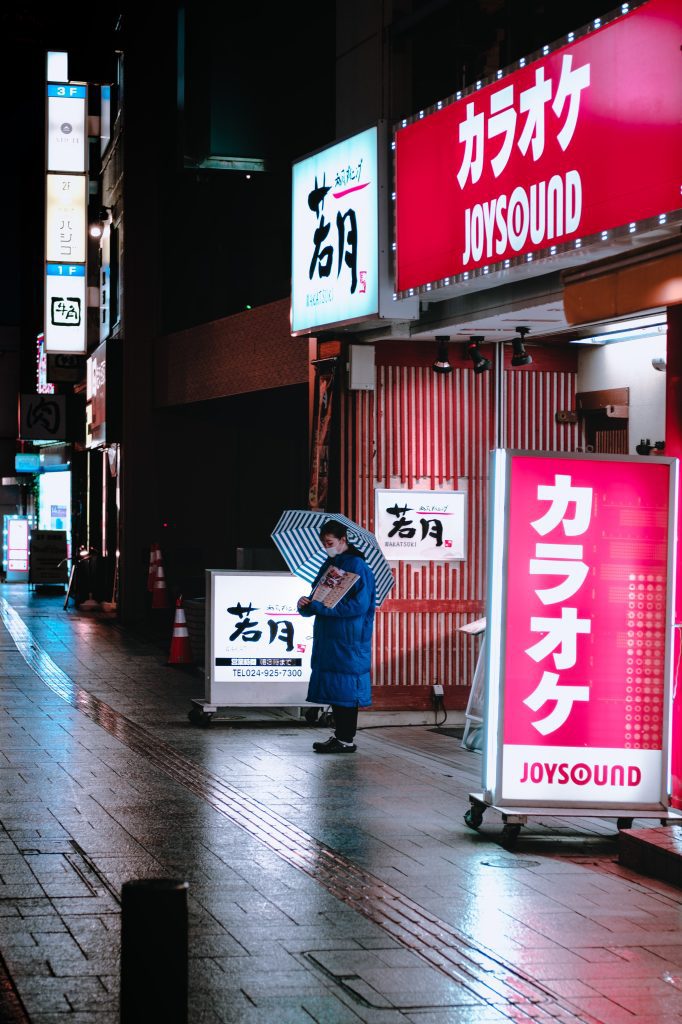
For most karaoke chains you can turn up without any prior notice, especially if you visit during off-peak times and in a small group. However, if you are planning a party or to attend in a large group you will need to reserve in advance. Some party rooms can hold up to 40 people depending on the chain and can be a great way to celebrate with friends, colleagues or family. Most chains will allow you to make a reservation online via their website but you can also make a reservation over the phone. Just remember to register first so you can give them your membership number.
How much is karaoke in Japan?
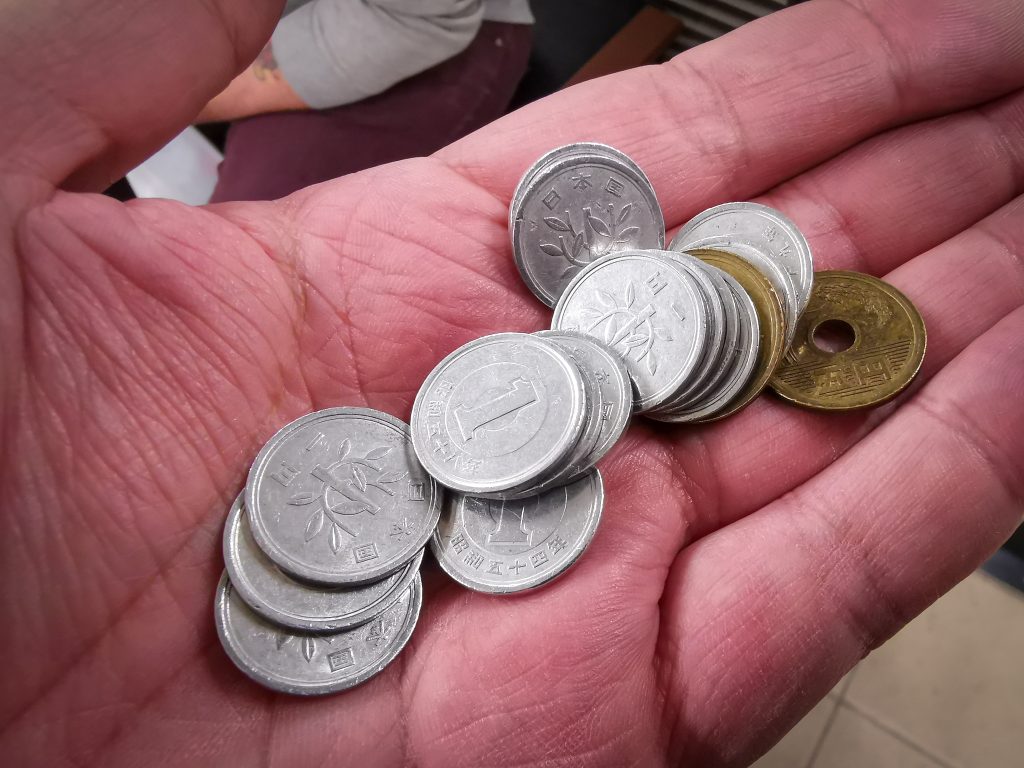
Karaoke is usually charged per person, per half hour or hour. To book a room, you need to at least book for one hour and sometimes order at least one drink per person. However, the rate you are charged will depend on whether you go during off-peak hours or peak hours. Peak hours are evenings and weekends, whereas off-peak hours are usually during the daytime on the weekdays (before 7pm). If you go during off-peak hours, you can expect to pay somewhere between 200 and 400 yen for one hour of karaoke per person whereas peak hours range from 500 to 1000 yen depending on time and day.
Get membership and purchase your own microphone

By registering online, downloading an app or registering at reception, you can become a member of a karaoke chain and book at a discounted rate. It’s a good idea to register if you are planning on using a particular chain often. Furthermore, if you enjoy karaoke and think you will go often, it might be worth investing in your own microphone. Having your own microphone is not only more hygienic, but you will also get consistent sound quality and your voice will be less likely to echo so you can sing with more confidence. You can select a microphone depending on your preference such as a wireless mic that connects with Bluetooth. Microphones can be purchased from karaoke chains directly or online from Amazon or Rakuten.
If you are nervous to try karaoke for the first time or want to research songs in advance to save precious time in the booth, then check out JOYSOUND’s website here for a list of easy to sing Japanese songs. On the webpage you can also listen to the songs and read their lyrics. Karaoke is a great way to relieve stress and bond with friends or co-workers. It is also just as enjoyable on your own and a great environment to practice singing. We hope you enjoyed our guide on Japanese karaoke and now feel ready to belt your heart out at the next opportunity.
FAQ
How does Japanese karaoke work?
People sing into a microphone in a private booth to recorded music as lyrics appear on screen.
How can I extend my karaoke session?
Use the phone in your booth to call reception and ask them to extend. Extend in Japanese is enchou-suru (延長する/えんちょうする)
Are Japanese karaoke rooms soundproof?
Yes. Although some sound may leak into the corridor from the doors, for the most part they are soundproof and it’s unlikely you’ll hear much from the other booths when in your own room.
Do Japanese karaoke rooms have English songs?
Yes. Most karaoke rooms in Japan have English songs, and they sometimes have even more international options as well.
